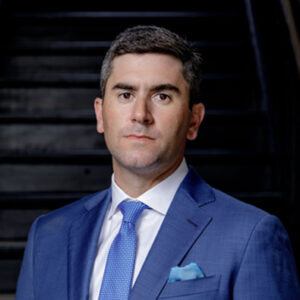
Undergoing any type of surgical procedure can be nerve-racking. You might be worried about the outcome and what it can mean for your overall health. All too often, however, an added concern revolves around whether the medical professionals will offer the accepted standard of care or not.
Medical malpractice impacts many lives in Pensacola, Florida, each year. Errors can be severe enough to result in catastrophic injuries and wrongful death. That’s especially true for any mistakes leading to anesthesia injuries. Learn more about these types of injuries and whether you can file a claim if you’ve sustained one.
What Are Common Causes of Anesthesia Injuries?

Anesthesia injuries can result from a variety of negligent actions by medical professionals.
A Pensacola personal injury lawyer can help you understand whether your anesthesia injury was the result of medical malpractice.
Inadequate Monitoring
The anesthesiologist must consistently monitor your vital signs while under anesthesia. They must be ready to act if anything changes. If they’re not paying attention, they could miss signs of distress. Hypoxia is particularly dangerous because it can lead to brain injuries as a result of low oxygen.
Poor Patient Positioning
The entire surgical team must work to prevent the patient from suffering injuries, including pressure ulcers and nerve damage.
During surgeries that take several hours, improperly positioned patients can end up with much of their weight pressing against a part of their body with little surface area. Blood flow could also be restricted from positioning errors, resulting in lasting tissue damage.
Drug Errors
Patients may be given the wrong anesthetic, the wrong dosage, or a combination of medications that impacts them negatively. This can lead to complications during surgery, including allergic reactions, drops in blood pressure, and dangerous interactions with other medicines.
Airway Management Problems
Anesthesiologists have to monitor patients’ airways, too. They must be alert to the risk of aspiration, which occurs when stomach contents enter the airways. Any type of obstruction must be addressed quickly.
Improper Intubation
When intubation is necessary, the anesthesiologist must perform this action carefully. If they don’t, they could damage the patient’s windpipe and impact many other delicate structures.
Lack of Communication
Surgical teams must communicate effectively with anesthesiologists and vice versa. Poor communication can lead to everything from medication errors to delays in treating emergencies.
Equipment Failure
Sometimes, it may be the equipment that leads to injuries. Faulty breathing systems, for example, might not register the right numbers and could lead anesthesiologists to believe the patient is getting what they need when they’re not.
Understanding Medical Negligence
Not all harm during a medical procedure is negligence. Some errors can’t be prevented. To show that medical negligence occurred, the law requires proof that another professional would not have made the same error.
That’s not simple to do because it requires showing that the defendant breached their duty to offer the accepted and standard level of care. To accomplish this, you’ll likely need expert witnesses to testify that the error that led to your injury could have been prevented. Because of these complexities, it’s not something that you should ever attempt to do without experienced legal representation.
How Can an Attorney Help With a Medical Malpractice Claim in Florida?
A Pensacola personal injury attorney can work with medical experts to establish the standard of care, determine how it was breached, and calculate the full extent of your damages. They will ensure that you pursue the compensation you deserve for your suffering and losses.
After an anesthesia injury, your lawyer can guide you through the process of seeking compensation, including:
- Investigation and evidence gathering: Your lawyer will meticulously examine all aspects of your case, focusing on gathering crucial evidence. This includes interviewing witnesses (such as other surgical team members), collecting medical records, and consulting with professionals to corroborate that negligence caused your injuries.
- Loss assessment: Your lawyer will assess the full extent of your losses due to the injury. They will calculate medical expenses, lost wages during recovery, and significant non-economic damages like pain and suffering.
- Negotiation and litigation: Once all information is compiled, your lawyer will negotiate with insurance companies for a fair settlement. Their experience in this area increases the likelihood of receiving appropriate compensation. If the insurance company refuses to offer a fair settlement, your attorney can take the case to court to pursue a jury verdict.
With their expertise, your lawyer can work to ensure you receive the compensation you deserve.
Contact Gross & Schuster Injury Lawyers Today for a Free Consultation With Our Pensacola Medical Malpractice Attorneys
After suffering an anesthesia injury, you could be left with medical bills, as well as long-term health issues that can impact your entire life. If negligence played a role in what occurred, filing a claim could be the right next step.
At Gross & Schuster Injury Lawyers, our team of attorneys can help you fight for your rights. Our attorneys have 75 years of combined experience and have secured $200 million in compensation for our clients. Contact us online or call (850) 434-3333 today to schedule a free consultation with a Pensacola medical malpractice lawyer.
